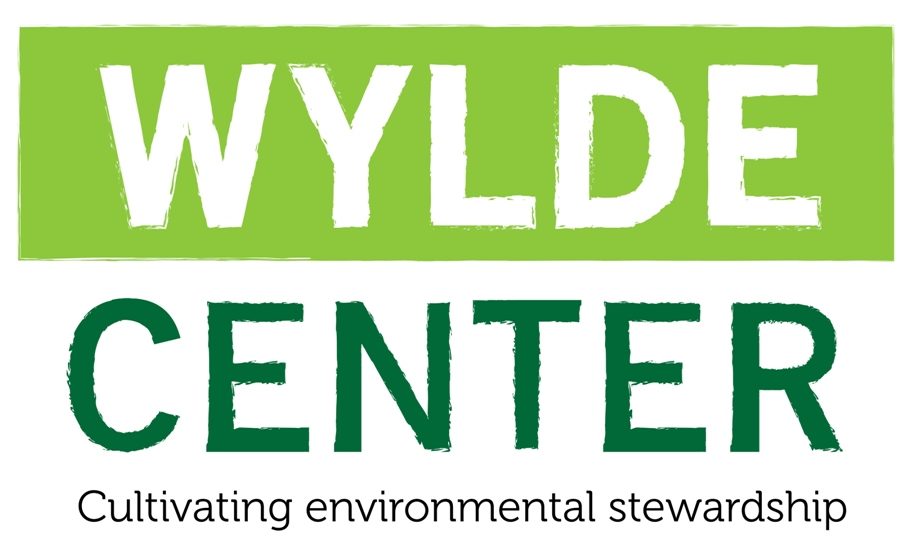

Wylde Center Field Trips cover a wide range of topics including environmental science, gardening, health & wellness, and food education. If you don't see a topic here that you are interested in learning about, please know that we may be able to customize your visit.
No two Wylde Center Field Trips are the same! We vary our lessons slightly based on the seasons and what is happening in out gardens at the time.
Gardens, Farms, and Chickens (all ages) In this introduction to sustainable gardening and farming, students will learn about gardening basics through planting seeds in one of our Learning Gardens then visit our mini farm to learn about how food is grown. They will meet chickens and understand their roles on the farm.
Sustainability & Conservation in the Garden (all ages) Learn what sustainability is and how it helps us keep the earth healthy. Experience some of the ways the Wylde Center promotes sustainability, and find out why conserving natural resources like water and soil directly impacts our personal health. Topics covered: erosion, soil health, soil composition, composting, water conservation.
Five Senses Exploration (PK - 1) Students will explore the garden and woods engaging their senses every step of the way. They will smell herbs, feel fuzzy or smooth leaves, listen to birds and other wildlife, taste garden produce if available, and use their sense of sight to take it all in.
Characteristics and Basic Needs of Plants and Animals (K-5) We will hike to find the different plants and animals living at the garden and discuss the basic needs of both. We will examine how they move, grow and reproduce, and how they are uniquely adapted to living in their environment.
Life Cycles (K-5) This program provides an up-close look at many of the plants and animals living in the garden and examination of these organisms in various stages in their life. We will learn the life cycle of plants by observing seeds and the plants they grow into, learn about the life cycle of chickens by meeting the Wylde Center chickens and observing their eggs, and/or find out how worms and composting help start the life cycle all over again.
Soil Types & Soil Health (K-6) During soil program students will examine four soil types - clary, loam, silt, and sand. We will discuss the benefits and challenges of each soil type for our land and garden. In addition students will learn about ways we improve our soil health at the Wylde Center through sustainable gardening practices like compost, cover crops, and mulching.
Habitat Exploration (K-5) Students will learn about the features that make up a suitable habitat while exploring the woods, stream and garden habitats of the green space and investigating the plants and animals unique to each.
Stream Study (3-8) Students will study the stream at one of our green spaces to learn about erosion, weathering, and natural floodplains, and how these things affect stream health and the ability of the stream to support life.
Takes place at Hawk Hollow.
Water Cycle (4-8) Students will use the stream and other natural resources to learn about the water cycle within one of our green spaces. Field trips at our Oakhurst Garden location will be able to get a tour of our rainwater irrigation system which has made that garden 100% watered by rainwater.
Ecosystems & Food Webs (4-8) Students will walk through one of our green spaces to identify consumers, producers, and decomposers. We will learn about the interconnectedness of all living things, and discover what happens when equilibrity is thrown off by invasive species, and the merits of native species. Students will also identify factors that affect the survival and extinction of organisms.
Microorganisms in the Garden (5-8) Study ways sustainable farmers and gardeners use beneficial microorganisms, cover crops, and compost as techniques to build soil health.
Scientific Drawings & Plant Classification (5-12) Students will explore the garden or woods to find objects that they want to learn more about. They will then create a scientific drawing of their object, identifying and labeling its main parts as they observe them.
Herbalism & Wellness in the Garden (5-12) This lesson is intended to introduce students to the nutritional and medicinal components of plants that can be used in teas. During class, students will be able to taste test a variety of different teas and see the herbs growing in the garden.
Decomposition in the Compost Pile (5-12) Learn about the chemistry and biology of decomposition as we make our way through the compost pile. Students will learn not only what’s in compost and how it breaks down, but also its value to plants and humans alike.
